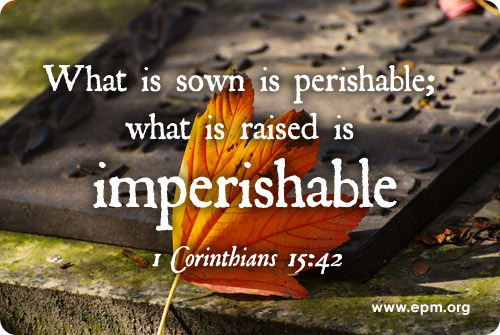Randy Alcorn's Blog, page 187
December 13, 2013
The Addictive Poison of Pornography
 When speaking about sexual purity at my church, I told parents that if they are going to let their children have internet access in the privacy of their own rooms, they may as well buy thousands of pornographic magazines and stack them in their children’s closets and then say, “Don’t ever look at those.” It amounts to the same thing.
When speaking about sexual purity at my church, I told parents that if they are going to let their children have internet access in the privacy of their own rooms, they may as well buy thousands of pornographic magazines and stack them in their children’s closets and then say, “Don’t ever look at those.” It amounts to the same thing.
After my message a sincere Christian mother came up to me. She was offended by my warning to parents to not allow their children to have unmonitored, unrestricted internet access.
“I can’t believe you said that,” she began. “My son has internet access in his room, and I trust him! He’s a good boy.”
I told her, “I used to be a seventh grade boy. I’ll tell you right now, you think you’re honoring your son by trusting him, but you are setting him up for a fall. You could hand him a gun, and his life would likely turn out better than if you just hand him over to the internet like that.”
If this strikes you as an overstatement, you simply do not understand the devastating effects of pornography. Though it would be absolutely irresponsible to simply hand over a gun to your son, many boys, perhaps out of fear, would not play with it or harm themselves or others. But the great majority who are allowed access to pornography will view it, and many of those will become addicted to it, ruining their lives and in many cases ruining their future marriages.
John Piper writes about recent research that confirms the poisonous dangers of pornography:
Pornography: The New Narcotic
By John Piper
The new narcotic. Morgan Bennett just published an article by this title. The thesis:
Neurological research has revealed that the effect of internet pornography on the human brain is just as potent — if not more so — than addictive chemical substances such as cocaine or heroin.
To make matters worse, there are 1.9 million cocaine users, and 2 million heroin users, in the United States compared to 40 million regular users of online pornography.
Here’s why the addictive power of pornography can be worse:
Cocaine is considered a stimulant that increases dopamine levels in the brain. Dopamine is the primary neurotransmitter that most addictive substances release, as it causes a “high” and a subsequent craving for a repetition of the high, rather than a subsequent feeling of satisfaction by way of endorphins.
Heroin, on the other hand, is an opiate, which has a relaxing effect. Both drugs trigger chemical tolerance, which requires higher quantities of the drug to be used each time to achieve the same intensity of effect.
Pornography, by both arousing (the “high” effect via dopamine) and causing an orgasm (the “release” effect via opiates), is a type of polydrug that triggers both types of addictive brain chemicals in one punch, enhancing its addictive propensity.
But, Bennett says, “internet pornography does more than just spike the level of dopamine in the brain for a pleasure sensation. It literally changes the physical matter within the brain so that new neurological pathways require pornographic material in order to trigger the desired reward sensation.”
Think of the brain as a forest where trails are worn down by hikers who walk along the same path over and over again, day after day. The exposure to pornographic images creates similar neural pathways that, over time, become more and more “well-paved” as they are repeatedly traveled with each exposure to pornography. Those neurological pathways eventually become the trail in the brain’s forest by which sexual interactions are routed. Thus, a pornography user has “unknowingly created a neurological circuit” that makes his or her default perspective toward sexual matters ruled by the norms and expectations of pornography.
Not only do these addictive pathways cause us to filter all sexual stimulation through the pornographic filter; they awaken craving for “more novel pornographic content like more taboo sexual acts, child pornography, or sadomasochistic pornography.”
And it gets worse:
Another aspect of pornography addiction that surpasses the addictive and harmful characteristics of chemical substance abuse is its permanence. While substances can be metabolized out of the body, pornographic images cannot be metabolized out of the brain because pornographic images are stored in the brain’s memory.
“In sum,” Bennett writes, “brain research confirms the critical fact that pornography is a drug delivery system that has a distinct and powerful effect upon the human brain and nervous system.”
None of this takes God by surprise. He designed the interplay between the brain and the soul. Discoveries of physical dimensions to spiritual reality do not nullify spiritual reality.
Read the rest on the Desiring God blog.

Related Resources
Video: Sex Is Not the Problem: A Message from Randy Alcorn and Steve Keels on Sexual Purity
Blog: Protecting Our Children in a Modern Corinth
Book: The Purity Principle
Photo credit: hoboton via sxc.hu
December 11, 2013
The Cost of Grace
 Hounded by the Pharisees, betrayed by a friend, forsaken by His disciples, brutalized by police, beaten by His inquisitors, led in disgrace to a rigged trial.
Hounded by the Pharisees, betrayed by a friend, forsaken by His disciples, brutalized by police, beaten by His inquisitors, led in disgrace to a rigged trial.
Arrogant men sitting in judgment over Him, crowning Him with thorns, mocking and disdaining. Beating Him without mercy, nailing Him to the cross, the worst of tortures, stretched out between thieves.
Miserably thirsty, utterly forsaken by His Father for the first time, the picture of complete aloneness.
Hell on earth! Not just one man’s hell, but the hell of billions. At any moment—in a millisecond—He could have called legions of angels to deliver Him and destroy His enemies. Instead, He bears forever the scars of sin, rebellion, mockery, and hatred... the scars of God’s grace.
The cost of redemption cannot be overstated. The wonders of grace cannot be overemphasized. Christ took the hell He didn’t deserve so we could have the heaven we don’t deserve.
If you’re not stunned by the thought of grace, then you aren’t grasping what grace offers you, or what it cost Jesus.
 In 1987, eighteen-month-old “Baby Jessica” fell twenty-two feet into a Texas well. Rescuers labored nonstop to save her. After fifty-five grueling hours, her life hanging in the balance, they finally reached her and extracted her from the well. The nation breathed a sigh of relief and cheered the heroes.
In 1987, eighteen-month-old “Baby Jessica” fell twenty-two feet into a Texas well. Rescuers labored nonstop to save her. After fifty-five grueling hours, her life hanging in the balance, they finally reached her and extracted her from the well. The nation breathed a sigh of relief and cheered the heroes.
This was not the story: “Baby Jessica clawed her eighteen-month-old body up the side of that twenty-two foot well, inch by inch, digging in her little toes and working her way up. She’s a hero, that Jessica!”
Baby Jessica was utterly helpless. She could do nothing to deliver herself. Her fate was in the hands of her rescuers. Left to herself, Jessica had no chance. Likewise, when it comes to our salvation, we’re utterly powerless. That’s grace: “At just the right time, when we were still powerless, Christ died for the ungodly” (Romans 5:6).
We get no more applause for our redemption than Baby Jessica got for being rescued. God alone deserves the ovation. In the story of redemption, He’s the only hero. And it didn’t just cost Him fifty-five hours of hard work—it cost Him everything.
Do you want to say “Thank You” right now?

Related Resources
Audio: How does understanding God's grace give us fresh perspective?
Blog: Better than I Deserve
Book: The Grace and Truth Paradox
December 9, 2013
Thoughts on Cremation vs. Burial, and the Resurrection Question
I’ve been asked several times over the years about my thoughts on burial vs. cremation. I do have an opinion, but it’s not a super strong one, more a personal preference in light of certain ancient practices. I share some reasons why in this video and the article that follows. (It seems important to state that my point in sharing this blog is not to put anyone in distress or have them second guess past decisions. Rather, this is only for those who are interested and are thinking about future decisions.)
As for whether God can resurrect a body that’s been cremated, that’s no problem whatsoever! Think of all the people incinerated in terrible fires, and all the atoms and molecules and DNA dissipated and reabsorbed into the eco-system (and other people) over thousands of years. Cremation and burial result in the same essential change in chemical nature. The primary difference is that cremation is an action to make that change nearly instantaneous rather than gradual. But in any case our all-powerful God will have no trouble making a perfect resurrection body out of the fragments He will raise.
 The other issue is whether there is any Scriptural preference of cremation or burial. Personally, I believe Scripture suggests burial is the appropriate way to deal with a dead body—“for dust you are and to dust you will return” (Genesis 3:19). This seems to imply the body is to be allowed on its own to return to dust, not that action should be taken by others to turn it to dust.
The other issue is whether there is any Scriptural preference of cremation or burial. Personally, I believe Scripture suggests burial is the appropriate way to deal with a dead body—“for dust you are and to dust you will return” (Genesis 3:19). This seems to imply the body is to be allowed on its own to return to dust, not that action should be taken by others to turn it to dust.
God said to Abram, “You will go to your fathers in peace; you will be buried at a good old age” (Genesis 15:15). Scripture records the burial of Sarah, Rachel, Leah, Isaac, Rebekah, Jacob, Miriam, Aaron, Joshua, Gideon, Samson, Samuel, David, Solomon, Elisha, and others. We’re told of Joseph, “So Joseph died...and they embalmed him, and he was put in a coffin in Egypt” (Genesis 50:26). Obviously it would have been much easier for them to cremate Joseph’s body and carry around his ashes for forty years, but this was not the chosen way. God Himself buried Moses on the top of Mt. Nebo (Deuteronomy 34:5, 6). If God preferred another means of disposing a body besides burial, this was an opportunity to choose it. He didn’t.
Hebrew burial wasn’t identical to ours, as it was more often in tombs than underground, but the point is that the body was not destroyed by fire or any other means, but was “laid to rest” somewhere intact.
In contrast, heathen nations often burned dead bodies (and sometimes live ones). Some cite Amos 2:1 as an anti-cremation passage. “Thus says the Lord: ‘For three transgressions of Moab, and for four, I will not revoke the punishment, because he burned to lime the bones of the king of Edom.’” I’ve never studied this contextually or historically, so I’m not sure whether there’s validity to using it that way. But one of the few references to God’s people burning bodies is in Joshua 7:24-25 where Achan and his family are stoned and then their bodies burned. Clearly, this related to God’s judgment on Achan’s terrible sin.
In the New Testament we see the burials of John the Baptist, Ananias, Sapphira, and Stephen. Jesus, of course, was also buried (Matthew 27:58-60). I’ve read that when Christians were torn by wild beasts in the arena their brothers and sisters carefully collected their remains and buried them in the Catacombs. Burial was considered an important and loving act.
Burial demonstrates respect for the body. It allows natural processes (well, natural under the Curse) to occur, without us taking direct action to destroy the body. True, the dead body is no longer animated, but the fact remains it was handmade by God and once served a sacred purpose as the temple of his Spirit (1 Corinthians 6:19), and will again serve as an essential aspect of one’s God-created identity. If He chooses to destroy what belongs to Him, through natural processes or anything else, that’s up to Him. But do we have that same right to destroy what we didn’t make and what doesn’t belong to us?
While bodies were frequently burned in heathen nations, burial was the consistent practice of God’s people, the Israelites, and also of the early church: “Godly men buried Stephen” (Acts 8:2). Christ’s burial is stated as a component of the gospel (1 Corinthians 15:3-4). We were “buried with him through baptism” (Romans 6:4; Colossians 2:12).
As believers, we will escape the coming judgment of the world that will be judged with fire (Revelation 20:14). We will not burn in the fires of hell but will enjoy God’s presence in resurrected bodies in Heaven (New Earth). To destroy the body by fire rather than to bury it doesn’t seem to fit the biblical precedent or its pattern of symbolism.
In the great resurrection passage, Paul talks of the body being “sown,” a reference to burial (I Cor. 15:42-44).The body being sown as a seed put in the ground is a particular picture. Burning a seed rather than planting it doesn’t fit that picture. That doesn’t prove it’s wrong, only that it’s not in keeping with Paul’s analogy between burial of the body and the planting of a seed.
Eastern religions tend to disregard the body and seek to be free of it. Hence, utter destruction by fire fits their worldview. Biblical Christianity awaits a resurrection, realizing the same bodies put into the ground will be raised by God. Hence, destroying those God-created bodies which He promises to raise doesn’t seem appropriate.
It could be argued that questions of the body’s disposal are purely cultural, and just because Israel and the first-century church practiced burial and not cremation is no reason we should. Still, the consistency of this practice among God’s people and the fact that pagans often burned bodies, as well as the association of fire with God’s judgment, is suggestive.
Of course, there are arguments for cremation based on economics or convenience. As far as I know there are no direct biblical arguments for cremation. If not, then my personal preference is to go with what we know, that God is not displeased with burial and appears even to be pleased by it.
Of course, countless Christians, unaware of or unconvinced by this logic, have chosen and will choose cremation. Again, this creates no problem for God or our loved ones regarding the resurrection. I’m just sharing these thoughts for those who may be curious.

Related Resources
Video: Bodily Resurrection and the New Earth
Blog: The Spiritual Body: A Real Body
Book: Heaven
Stock photo credit: Mattox via sxc.hu
December 6, 2013
Depositing This Life in Eternity’s Account
 When Hudson Taylor opened a bank account for the China Inland Mission, the application form asked for an asset list. Taylor wrote the following as the sum total of his assets: “Ten pounds and all the promises of God.” Our greatest resources are spiritual, not material. They come from another world, not this one.
When Hudson Taylor opened a bank account for the China Inland Mission, the application form asked for an asset list. Taylor wrote the following as the sum total of his assets: “Ten pounds and all the promises of God.” Our greatest resources are spiritual, not material. They come from another world, not this one.
One morning I was at a restaurant when a frazzled woman blew through the door and loudly complained to her friend, “The wipers aren’t working again on my Porsche, and the Audi’s in for repairs. I’ve had it!”
I smiled but at the same time was saddened for this poor woman. (Yes, poor woman.) What a contrast to the believer with eternal perspective:
I have learned to be content whatever the circumstances. I know what it is to be in need, and I know what it is to have plenty. I have learned the secret of being content in any and every situation, whether well fed or hungry, whether living in plenty or in want. I can do everything through him who gives me strength. (Philippians 4:11-13)
Paul doesn’t say it is wrong to live in plenty, but that the same secret to contentment applies then as when we’re in poverty. Contentment isn’t the product of material abundance; it results from our invisible resources in Christ. In the third century, Cyprian, bishop of Carthage, wrote this description of the affluent:
Their property held them in chains . . . chains which shackled their courage and choked their faith and hampered their judgment and throttled their souls. . . . If they stored up their treasure in heaven, they would not now have an enemy and a thief within their household. . . . They think of themselves as owners, whereas it is they rather who are owned: enslaved as they are to their own property, they are not the masters of their money but its slaves.
God keeps records of what we do with his money. At the moment we meet Christ—at our death or his return—all accounts will be frozen, all assets and expenditures opened for the Final Audit. And then it’s God himself—the Owner, Manager, and Auditor of the Bank of Eternity—who will make eternal dispersals based on how our account reads after the last deposit has been made and the account finally closed.
C. T. Studd was a rich and famous English athlete who sold his entire estate, gave it away, and went to the mission field to serve Christ. He summed up the perspective that motivated him: “Only one life, ’twill soon be past. Only what’s done for Christ will last.”

Related Resources
Book: Managing God's Money
Blog: Surviving the Dangers of Prosperity
Article: Eternity Minded Stewardship and Giving
December 4, 2013
How EPM Is Impacting Eternity, and How You Can Join Us

We don’t share this kind of post very often, but every once in a while it seems appropriate to share a little more about Eternal Perspective Ministries, and the work we’re doing to make an eternal difference around the world for Christ. We invite you to watch this short video to learn more:
Some of you may be aware that this past summer, EPM faced a serious financial shortfall for our third summer in a row. Of the six times in our 23-year history that we’ve had to publicly share our financial needs, three were in the last three years—despite our efforts to avoid this type of situation.
People generously came forward with small and large amounts, and we're grateful for each gift. Our finances have stabilized; God provided wonderfully and deserves the praise for all of this.
However, we’re continuing to 1) carefully analyze expenditures 2) ask the Lord to provide for us over the long-haul, with sufficient finances that we’ll be able to save money to sustain us through summertime when giving is historically at its lowest.
It is EPM’s conviction never to beg for funds. However, we don't believe it's wrong to share a legitimate need, considering Paul’s example: “For we do not want you to be ignorant, brothers, of the affliction we experienced” (2 Corinthians 1:8). After sharing about our financial status last June, one of the things we heard several times was, “We never knew you had any needs. Thank you for letting us know!”
If someone were to ask what EPM’s greatest financial need is today, we would say it is new monthly supporters. This would stabilize us long-term, allowing cash flow to continue during the lean months. After your commitment to your local church, if and only if God so leads and you’re willing to consider giving monthly—whatever size the amount—we’d be deeply appreciative. (See below for giving information.)
I want to also say a special thanks for the ongoing support of our current monthly donors. You are the backbone of this ministry. I am profoundly grateful for your kind support, in some cases for the past 23 years!
Above all, we value your prayers. Daily we are humbled and amazed to see remarkable responses from people worldwide who are being touched by this ministry. Thank you for lifting us up before our King.
Profoundly grateful to our God of grace,

From Eternal Perspective Ministries
Convenient Monthly Giving or One-Time GiftsFor those wanting to make a year-end, tax-deductible donation to EPM, please note that donations postmarked no later than December 31, or received online by 11:59 p.m. PT on December 31, will be included on this year’s tax receipts. If God lays it on your heart to give to our ministry, or to pray for us (the greatest gift you can offer), know that we deeply appreciate it.
We also offer the option of donating by EFT (Electronic Funds Transfer), which allows you to transfer money from your checking or savings account directly to EPM. You can also set up recurring gifts using EFT or a debit/credit card. We hope this will be a convenient option for our donors, with the added benefit of no checks to write and no postage to pay!
You can donate online or call our toll-free line at (877) 376-4567 for assistance. And, of course, you can always send a check to: EPM, 39085 Pioneer Blvd., Suite 206, Sandy, OR 97055.
Our Invaluable Partnership with YouSome readers might wonder, “Why support a ministry associated with a bestselling author? Why doesn't he just use money from the book royalties to fund all of EPM’s expenses?” Randy strongly believes God has directed the Alcorns to give 100% of the book royalties to worthy Christian ministries, including missions, feeding the hungry, prolife and many others. Because Randy and Nanci believe in what EPM is doing, they have recently decided to give 10% of the book royalties to EPM, in light of our ministry needs. God has graciously blessed the sale of Randy’s books, and we believe it’s partly because the royalties are all given to the Lord. We also believe that EPM benefits from having contributors to our general fund because of the partnership through prayer and accountability.
December 2, 2013
Rejoicing Despite Circumstances

Have you ever read the classic children’s story Alexander and the Terrible, Horrible, No Good, Very Bad Day? When you first read the story, you think Alexander did have an unusual number of negative things happen to him, so no wonder he had a terrible day. But then you realize that Alexander’s day was filled with irritations and stressors typical to us all. They are simply part of being alive in this far-from-perfect world that suffers under the curse.
 It should be good news to Alexander and to us that God is going to take away all pain, suffering, death and tears, so we can live forever with Him and His people on the New Earth, in absolute peace, health, beauty, and happiness (Revelation 21-22). Wow! If you remind yourself of this, won’t it put what seems like a terrible, horrible, no good, very bad day in perspective?
It should be good news to Alexander and to us that God is going to take away all pain, suffering, death and tears, so we can live forever with Him and His people on the New Earth, in absolute peace, health, beauty, and happiness (Revelation 21-22). Wow! If you remind yourself of this, won’t it put what seems like a terrible, horrible, no good, very bad day in perspective?
Ponder that you deserve eternity in Hell, but Jesus went to the cross so you will get what you don’t deserve, eternity with Him in Heaven. You were delivered from a truly horrible eternity and are assured an endlessly happy one. Doesn’t that make a bad day not seem so bad? (Add to that the assurance of Romans 8:28 that even when you can’t see it, God is working all things together for your good. Double wow!)
It’s our loss of perspective that magnifies every little thing that goes wrong. Think about it. If today was difficult because “it wasn’t a normal day,” ask yourself, “When was the last time I had a normal day?” It wasn’t Alexander’s circumstances but his interpretation of and response to those circumstances that caused his terrible, horrible, no good, very bad day. Same with ours.
Circumstances aren’t what makes a day—or a lifetime—good or bad. Why else are many people with beautiful homes, every material possession imaginable, financial security, and perfect health miserable…even suicidal? And how can many others who live in relative poverty and poor health be filled with the joy of life?
Consider Paul and Silas when they were in prison at Philippi. Both men had been flogged, and their feet were fastened in stocks in what in those days was surely a disease-ridden, rat-infested cell. How did they respond? “About midnight Paul and Silas were praying and singing hymns to God, and the other prisoners were listening to them” (Acts 16:25). Keep in mind that Paul and Silas rejoiced and sang with no knowledge of their impending escape through divine intervention.
What would most of us have done in that prison cell? Mope and grouse and weep and kick the walls and cater our own little pity party. It’s when there’s something different about us, when we are filled with “the peace of God which transcends all understanding,” that we draw the attention of discontented, searching people in need of Christ.
Suppose your baby is born with Down syndrome or your family business is lost or your spouse leaves or your house is burned to the ground—are we suggesting these circumstances will not affect you? Of course not. We’re only saying they need not control you. You can rise above them, as Paul and Silas and many others have done. When these things happen to Christians, the world will watch. And if it sees calm in the midst of storms, it will be drawn to Christ.
“Be joyful always; pray continually; give thanks in all circumstances, for this is God’s will for you in Christ Jesus” (1 Thessalonians 5:16–18). The choice to give thanks in all circumstances is both the cause and the effect of a godly perspective—as well as a great reliever of stress.

Related Resources
Book: Help for Women Under Stress
Blog: The Power of Perspective
photo credit: Rick Camacho via photopin cc
November 29, 2013
The Story of Jesus Through the Eyes of Children
 God has a special love for children. Christ taught that we need to become like children to enter God’s Kingdom, and He made a point of embracing children when His disciples wanted to exclude them (Matthew 19:13-14). He said “Let the little children come to me, and do not hinder them” (Luke 18:16).
God has a special love for children. Christ taught that we need to become like children to enter God’s Kingdom, and He made a point of embracing children when His disciples wanted to exclude them (Matthew 19:13-14). He said “Let the little children come to me, and do not hinder them” (Luke 18:16).
God desires for children of all cultures and nationalities to come into a relationship with Him through Christ. What a privilege to share this Good News with them! That’s why I’m excited about “The Story of Jesus Through the Eyes of Children” DVD from my friends at the JESUS Film Project. It offers the film in 24 different languages, so it’s great for family, neighbors and friends from different cultures. All the translations are on a single DVD, which is both cool and amazing! (How often can you give the same gift to people who speak 24 different languages?)
The dialogue of the original "JESUS" film was taken from the Gospel of Luke. It’s been translated into more than 1,100 languages and has had more than 6 billion viewings worldwide since 1979, making "JESUS" the most-watched film in history.
I encourage you to prayerfully consider ways you can use this video to share the gospel with children God has brought into your life. Here’s more about the film:
This video uses 40 minutes of the original "JESUS" film and integrates into the drama 22 minutes of new footage with children who might have lived in A.D. 30. The video allows children to hear and see the whole story at once, answering questions in clear and concrete terms, and providing fast action. It ends with an invitation, by a child to children, to accept Christ into their lives.
Children enjoy this captivating retelling of the true story of Jesus from a child's perspective. If you want to reach a child, English speaker or not, with the message of Jesus in a compelling, understandable, and exciting way, "The Story of Jesus for Children" is the tool you've been looking for!
We’re not selling these DVDs; we’re giving them away with every order from our ministry today.
You can watch the entire video online in English:

Related Resources
Book: Tell Me About Heaven
Blog: An Invitation to Join the Giving Tuesday Movement
From Eternal Perspective Ministries
Every order today (Friday, November 29) from our online store will receive a complimentary copy of “The Story of Jesus Through the Eyes of Children” DVD with your shipment, plus a $10 coupon to use on your next order.
November 27, 2013
Thanksgiving: The Noblest and Most Joy-Giving Sacrifice

I appreciated these thoughts on gratitude from William Law (English cleric and theological writer, 1686 –1761), excerpted from his book A Serious Call To a Devout and Holy Life. May you have a happy, Christ-centered, full-of-gratitude Thanksgiving!
Would you know who is the greatest saint in the world? It is not he who prays most or fasts most; it is not he who gives most alms or is most eminent for temperance, chastity, or justice; but it is he who is always thankful to God, who wills everything that God willeth, who receives everything as an instance of God’s goodness and has a heart always ready to praise God for it.
…If anyone would tell you the shortest, surest way to all happiness and all perfection, he must tell you to make it a rule to yourself to thank and praise God for everything that happens to you. For it is certain that whatever seeming calamity happens to you, if you thank and praise God for it, you turn it into a blessing. Could you therefore work miracles, you could not do more for yourself than by this thankful spirit, for it heals with a word speaking, and turns all that it touches into happiness.
…though it be the noblest sacrifice that the greatest Saint can offer unto God, yet is it not tied to any time, or place, or great occasion but is always in your power and may be the exercise of every day. For the common events of every day are sufficient to discover and exercise this temper and may plainly show you how far you are governed in all your actions by this thankful spirit.
Give thanks in all circumstances, for this is God’s will for you in Christ Jesus (1 Thessalonians 5:18).
But I with the voice of thanksgiving will sacrifice to you (Jonah 2:9).

Related Resources
Book: 90 Days of God's Goodness
Blog: Sustained through Gratitude
November 25, 2013
An Invitation to Join the Giving Tuesday Movement

Black Friday. Small Business Saturday. Cyber Monday. What’s next? Fire-sale Sunday? It seems like every year there’s a new “specially designated” day to promote Christmas spending.
I want to say something about the growing “Giving Tuesday” movement (yes, yet another new day, but this one with a higher purpose). It’s the philanthropic community’s response to the consumerism of Black Friday and Cyber Monday and is designed to provide people with a charitable day to consider giving as they go into the holiday season. (Learn more at www.givingtuesday.org.)
 You can give to any ministry you choose. (In fact, we don’t turn down gifts at EPM!) But one of my favorite ministries is the JESUS Film project, which I’ve personally witnessed at work in powerful ways in China, Cambodia and Mexico. They’re one of the charitable partners participating in Giving Tuesday. If you are led to donate on December 3, then JESUS Film would be a great organization to consider. (In fact, if you wish, you can give through EPM and we’ll pass on 100% of the designated donations. Simply select the special fund “JESUS Film” at www.epm.org/donate.)
You can give to any ministry you choose. (In fact, we don’t turn down gifts at EPM!) But one of my favorite ministries is the JESUS Film project, which I’ve personally witnessed at work in powerful ways in China, Cambodia and Mexico. They’re one of the charitable partners participating in Giving Tuesday. If you are led to donate on December 3, then JESUS Film would be a great organization to consider. (In fact, if you wish, you can give through EPM and we’ll pass on 100% of the designated donations. Simply select the special fund “JESUS Film” at www.epm.org/donate.)
The Giving Tuesday project that JESUS Film will feature this year is the Mission 865 Project, which is their effort to translate the “JESUS” film for 865 people groups of 50,000 or more speakers; it will also have a challenge grant that will multiply the impact of the gifts given.
As the Advent Conspiracy movement shows, a growing number of believers are aware of the materialism in our Christmas celebrations and are choosing to celebrate differently. I’d encourage you and your family to consider ways that you can make this Christmas different, even if you still exchange presents, as our family does.
Many years ago when our then-missions-pastor Barry Arnold told our church about enslaved Christians in Sudan, family after family spontaneously decided to give to free the slaves. My family was among them, and it was a wonderful Christmas, made better by the knowledge that we’d given to what matters.
Shortly before he and his four friends were killed by the Auca Indians in their attempts to bring them the gospel, missionary Nate Saint wrote:
As we have a high old time this Christmas, may we who know Christ hear the cry of the damned as they hurtle headlong into the Christless night without ever a chance. May we be moved with compassion as our Lord was. May we shed tears of repentance for these we have failed to bring out of darkness. Beyond the smiling scenes ofBethlehem may we see the crushing agony of Golgotha. May God give us a new vision of His will concerning the lost and our responsibility.
David Bryant, author of In the Gap, asks, “Who wouldn’t like to end each day, putting our heads on our pillows, confidently saying, ‘I know this day my life has counted strategically for Christ’s global cause, especially for those currently beyond the reach of the gospel’?”
Whether or not you participate in “Giving Tuesday,” may this Christmas season focus on the person and work of Christ. One of my favorite verses is 2 Corinthians 8:9, “For we know the grace of Lord Jesus Christ, that though he was rich yet for our sakes he became poor, that we through his poverty might become rich.”
Speaking of a gift, imagine one day on the New Earth, the warm voice of someone from a different culture, with a different color of skin, coming up to you, embracing you and whispering, “Thank you—through your giving you helped bring us the good news of Jesus.”

Related Resources
Book: The Treasure Principle
Blog: Pondering God's Giving Heart
Article: Investing in Eternity
November 22, 2013
Don’t Raise Good Kids: Thoughts from Jon Bloom
My friend Jon Bloom, author of Not By Sight: A Fresh Look at Old Stories of Walking by Faith, wrote a great blog for Christian parents and for all those raised in Christian homes. I remember when our daughters were small, the importance of trying to convey even to really good kids that they are sinners, lost without Christ. It’s a delicate balance. On the one hand, when they’re obedient and responsible and kind, you want to affirm them for being good. But at the same time they need to see that just like their parents, they are truly sinners, they fall far short of God’s perfect standard, and they are completely lost apart from a relationship with Jesus as their Savior and Lord. Thanks, Jon for this thoughtful article:
Don’t Raise Good Kids
By Jon Bloom
Parents, don’t raise good kids. I’m a recovering good kid, and I’m here to tell you that the gospel isn’t for good kids.
I was pretty easy for my parents to raise. I was generally compliant, had a buoyant, warm personality, didn’t get into any serious trouble, was liked by my teachers for the most part, usually did respectably in school, was a leader in my church groups, and had plenty of friends. My adolescent, wild-oat sowing would only generate smirks and eye rolls.
My folks and most adults in my life affirmed me as a good kid, and I believed it. Which posed a problem for me: I struggled to grasp the gospel.
Me? Hell?
Though I believe my pre-adolescent conversion was real — God is gracious to produce and honor a small seed of real faith — it was hard to swallow that I was that bad. God showing favor on me in redemption made sense because others had shown favor on me. But it was hard for me to see that this favor was not the approval of a good kid but the pardoning of a condemned sinner. Really? Me deserve hell?

Related Resources
Book: Heaven for Kids
Blog: What is a father's primary responsibility?
Resource: Parenting Teens: Leaving a Lasting Spiritual Heritage
Photo credit: hotblack via sxc.hu







